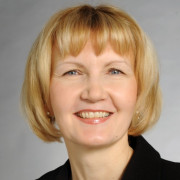Many universities provide students with opportunities to study also in summer. Traditionally, summer schools have been implemented as in-person teaching, but a new study shows that online summer schools, too, can be effective. They can bring added flexibility to participation when participants are in different time zones. In addition, international summer schools provide students with opportunities for joint reflection of various global themes.
“However, online summer schools should be well-planned in order to ensure that interaction not only between teachers and students, but also between students, is as close to face-to-face interaction as possible,” Project Researcher Lotta Aavikko says.
The study explored an online Sino-Nordic summer school on ageing aimed at doctoral students, and it was carried out in collaboration between Chinese and Nordic universities. Originally planned to be implemented as in-person teaching, the COVID-19 pandemic required a swift decision to shift to remote teaching.
“Teachers were a bit sceptical about how remote teaching would work, especially as the decision had to be made so quickly. Contrary to teacher’s fears, however, students were active and engaged, although there certainly was room for improvement in terms of how things were arranged,” Professor Eija Kärnä says.
The rapid shift to remote teaching posed challenges to achieving learning outcomes, time management and student counselling. Limited social interaction and scheduling online meetings with teachers and students in different time zones were also found challenging. These are issues that should be taken into account in the planning and implementation of similar online summer schools in the future.
“Most students considered remote teaching rather to be complementary to in-person participation,” Kärnä says.
The responses highlighted the role of international and multidisciplinary summer schools organised in the course of students’ studies.
Lotta Aavikko
Project Researcher
Summer school as a platform for joint reflection on global themes
According to the survey results, doctoral students’ competence needs and preferences varied according to different expectations and backgrounds. Answers to the survey questions were dependent on students’ stage of studies and discipline.
“Students reported having gained new insights and diverse perspectives on how ageing is viewed in different cultures. The summer school also helped participants to establish international and multidisciplinary contacts with other researchers working on ageing,” says Aavikko.
In the future, summer schools should be developed by improving planning and communication between the organising institutions, by involving students and stakeholders in the planning and implementation of education, by making more efficient use of online tools and by optimising time management.
“The responses highlighted the role of international and multidisciplinary summer schools organised in the course of students’ studies. Summer schools are needed so that researchers at different stages of their academic career can jointly reflect on global themes, such as ageing. However, this would also require supporting higher education teachers’ competence in cultural sensitivity,” Aavikko says.




